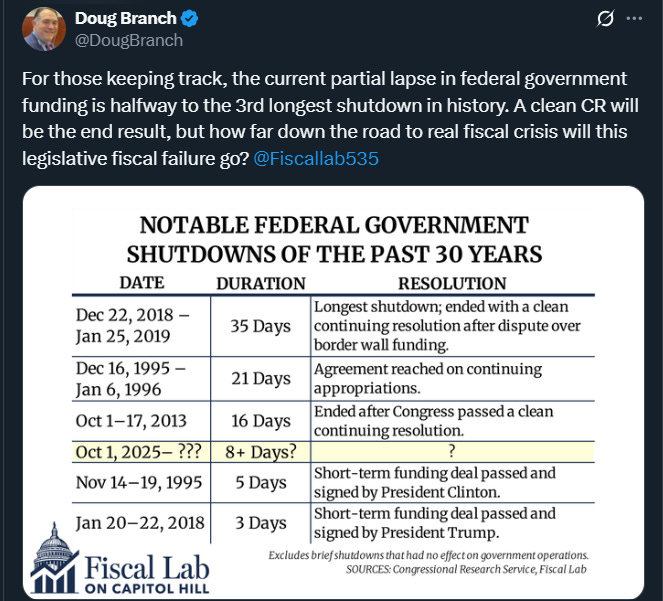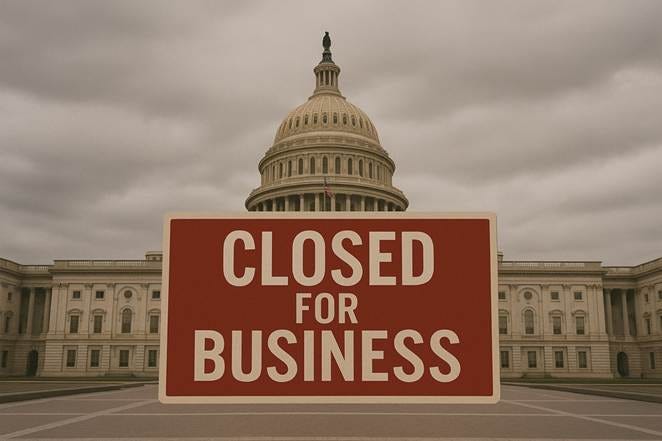Weekly Lab Report - October 15, 2025
On Shutdowns and Government Data
Fiscal Lab Notes is the official Newsletter for the Fiscal Lab on Capitol Hill. You can check out all our work and analysis at fiscallab.org.
The federal government shutdown has now entered its 15th day and is two days away from surpassing the 16-day 2013 shutdown, the third-longest funding gap. The Fiscal Lab’s Doug Branch has a handy chart on the history of shutdowns.
The two longest shutdowns were in 2018–2019 (35 days) and 1995–1996 (21 days). Why are government shutdowns frequently in the fall or around the holidays? For those who are new to fiscal policy, the federal government’s fiscal year runs from October 1 through September 30. To legally fund the various federal agencies, Congress must either pass 12 annual appropriations bills; an “omnibus” bill, which bundles some or all of the appropriations bills; or a continuing solution (CR), a stopgap that simply extends last year’s funding for a short period, usually several weeks. If Congress cannot pass one of these options, the government shuts down.
Beach and Groshen on BLS Data Collection and the Future of Economic Statistics
Last week, Fiscal Lab Executive Director and former Bureau Labor Statistics (BLS) Commissioner Bill Beach, along with his BLS predecessor Erica Groshen, sat down with Norbert Michel and Jai Kedia of the Cato Institute to discuss the current state of BLS employment and price statistics and how to improve them. Both former commissioners observed that the response rates of the Household Survey and the Establishment Survey, the two surveys used to create the BLS’s monthly jobs report, are suffering from lower participation rates, which threatens the data’s accuracy. Beach and Groshen argued that the survey should be modernized by blending it with private sector and internet data to create a much larger pool of respondents.
Crucially, both commissioners stressed the integrity of the BLS and warned that unwarranted allegations of politicization of the BLS undermine trust in the agency. Such attacks have also contributed to the retirement of senior figures at BLS, and now 12 out of 35 positions are vacant. As Beach said, “This is like building a bridge, and if your key construction workers and architects are suddenly missing because they have lost heart in the project, that bridge is very likely not going to be as strong a bridge or as useful to the public.”
Going Forward
As we mentioned last week, Fiscal Lab economists have begun scoring proposed legislation, which if enacted, would move us in a fiscally sound direction. In the coming days, be on the lookout for a Fiscal Lab glossary, which will provide definitions to the vast number of technical terms congressional budget staffers and other budget wonks would want to know. We will also be putting out short primers on a variety of budget and economic concepts.




